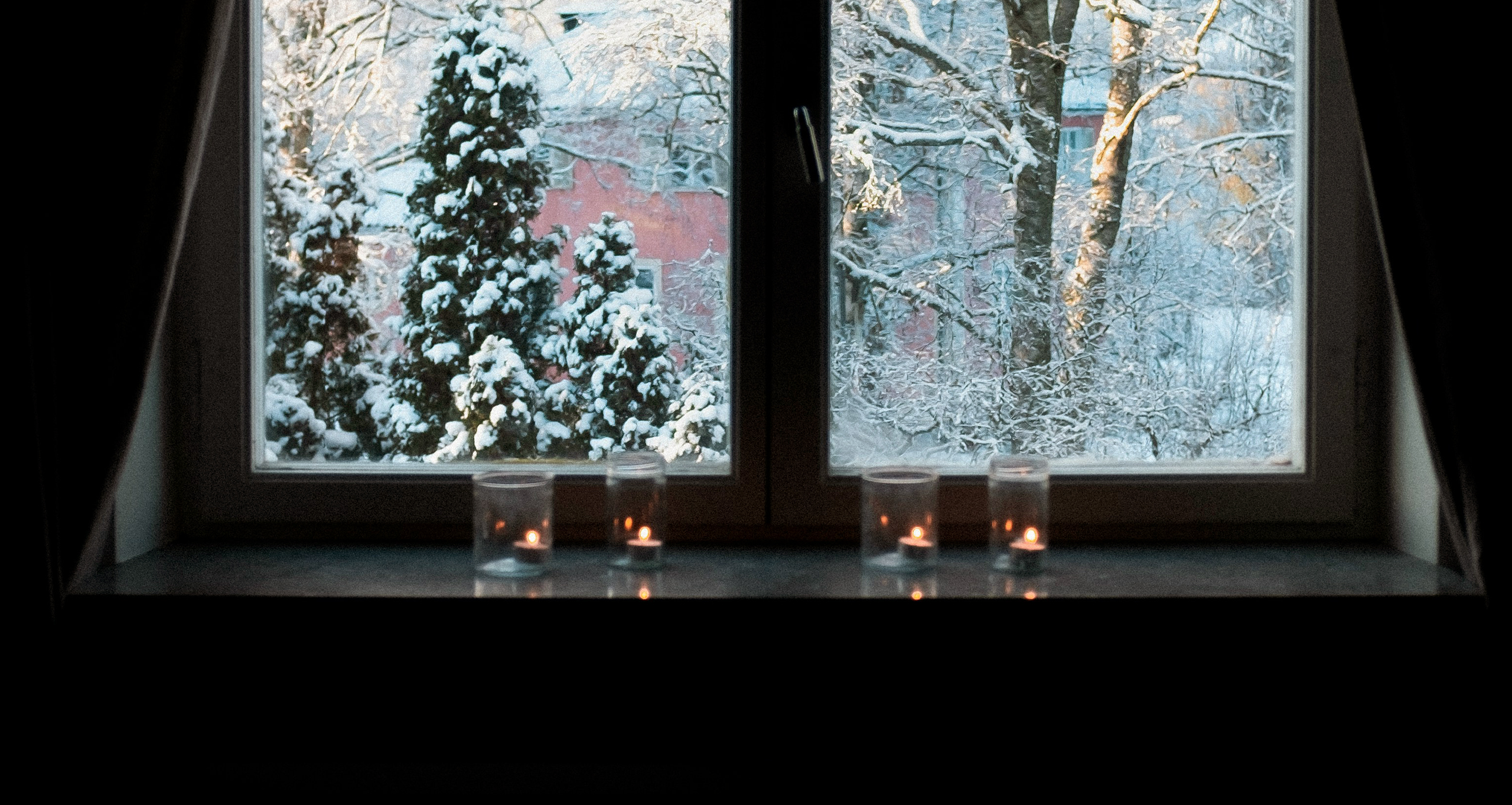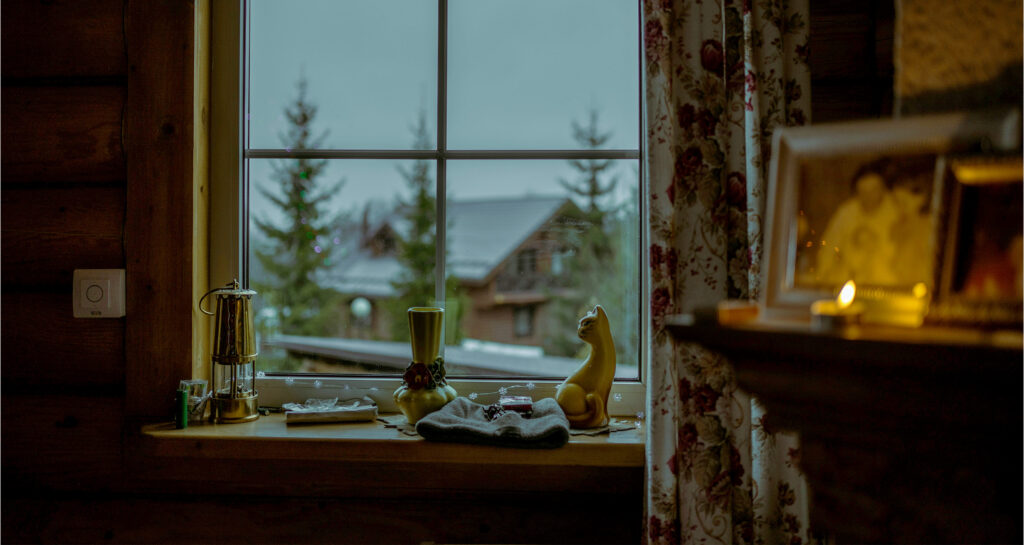Seasonal sadness? A fresh perspective on the frigid seasons
Published on November 22, 2025

Seasonal sadness creeping in? You’re not alone.
The first cool breeze of autumn feels like a relief after summer’s heat. Then, almost overnight, the light shifts. The air sharpens. The trees burn red and gold, then bare. For many, that beauty carries a hint of sadness — a reminder that the easy days of warmth and sunlight are slipping away.
As fall fades and winter nears, some of us notice our spirits dipping. The shorter days can feel heavy. Mornings arrive in darkness; evenings end too soon. Seasonal sadness has many faces. For some, it’s tied to old memories — a loss, a family strain, or a difficult holiday that still lingers. For others, it’s simply the ache of seeing the world dim and quiet. Young people feel it too — fall may still echo the stress of the return to school days and structure after summer freedom.
Whatever its cause, the weight feels real.
But perhaps there’s another way to see this stretch of the year — not as a decline, but a crescendo that whispers the promise of new life ahead.

The deeper meaning of the dimming seasons
Nature tells the truth gently: Everything has its time. The leaves’ fiery beauty ends in surrender, but the falling isn’t failure — it’s part of how the tree survives. Roots deepen while branches rest. The forest’s silence holds the promise of spring. Animals retreat into places of rest and hibernation, safe from the frosty cold until warmer days return.
Our lives, too, need these slower, quieter chapters. Autumn and winter invite reflection — the kind we can’t find when life rushes at full speed. The darker months aren’t punishment; they’re permission to pause. To breathe. To ask what matters most when everything extra fades away.

Why this time of year feels heavy
It’s not only the lack of sunlight that challenges us — it’s the emotional landscape that comes with it.
- Memories and meaning: The holidays can stir up grief or tension. We miss people. We remember losses.
- Fewer social connections: Shorter days often mean less time outside, fewer gatherings, and a sense of disconnection.
- Unrealistic expectations: Social media shows cozy, retail-fueled, perfection, but our reality may feel lonely or messy.
- Cultural pace: Modern life never slows down, even when our hearts and bodies need rest.
Admitting that the cold months are hard doesn’t mean weakness — it’s honesty. And that honesty is the first step toward rediscovering beauty here.

Seeing the beauty in the cold and quiet
If you look closely, the colder seasons still shine with wonder. The crisp air sharpens the senses. The smell of firewood, the crunch of leaves, the first snow — all remind us that beauty doesn’t end; it simply changes form.
There’s a peace in the slowness, too. The world’s quiet allows space for things we often overlook: reflection, gratitude, the closeness of loved ones. Even the stillness itself can be healing — an open invitation to rest, to notice, and to listen.

Rediscovering joy as winter approaches
The fall and winter seasons are not just times to survive — they’re filled with reasons to celebrate. Some of the most joyful occasions of the year unfold now. Thanksgiving and Christmas bring families and friends together, whether around a beautifully set table in a loved one’s home or a simple meal shared at a small restaurant.
We all notice it every year: Holiday decorations appear in stores almost comically soon after summer ends. And while retail may have its motives, there’s still something heartening about those first glimmers of orange, gold, and evergreen. They remind us that beauty, festivity, and community are coming — and with them, opportunities to step outside of ourselves.
Even the simplest joys — a steaming mug of cider, a favorite seasonal coffee flavor returning, the sound of carols in a store — carry their own kind of grace. They remind us that joy doesn’t have to be grand to be real.

Looking outwardly
For those who find this season lonely, that’s the very moment to look outward. Community doesn’t always mean large family gatherings; it can be a local event, a neighborhood dinner, or volunteering somewhere that needs your presence.
When we serve others, something shifts. Gratitude takes root. We stop dwelling on what we lack and start noticing what we have. Giving reawakens a fire within us — a warmth that money, comfort, or distraction can’t replace.
For those longing for something deeper, these months can be an invitation to reconnect — with family, friends, and perhaps with faith itself. This is a chance to slow down and rediscover that meaning isn’t found in constant motion but in connection and gratitude.
And as the year draws to a close, that same spirit of hope carries us forward. New Year’s Day may seem just like the start of a new calendar, but it holds something profound: permission to begin again. To change direction. To rise early and run before the world stirs. To try something new. To stop letting sadness define the season and instead choose to find purpose.
Even if you’ve spent months feeling low or disconnected, renewal is never out of reach. Every moment carries the quiet possibility of starting over. And for many, this time of year gently points the heart back toward God, the one who makes all things new, even when we feel at our weakest.

Practical ways to thrive in the darker months
If the colder months leave you feeling weighed down, try weaving small moments of light and warmth into your days to help you find peace right where you are.
- Chase the light. Step outside in the morning or during a lunch break. Even a few minutes of sunlight helps lift mood and energy. If the sky stays gray or the weather keeps you home, bring the light indoors — open curtains, use warm-toned lamps, or light a few candles for a cozy glow. A well-lit space gently reminds the heart that brightness isn’t only found on sunny days.
- Create small daily rituals. Brew a comforting cup of tea in the afternoon, light a candle at dinner, take an evening walk, or play soft music as you cook. Repetition brings comfort and rhythm when life feels flat.
- Reach out intentionally. Invite someone for a meal, send a handwritten note, or call a friend. Connection doesn’t have to be grand — it just has to be sincere.
- Move with gentleness. Take walks, stretch, or work with your hands. Simple, steady motion helps release tension and reminds you of your own vitality.
- Feed your senses. Surround yourself with warmth — soft blankets, good food, baked goods, pleasant scents, calm lighting. Small comforts are not indulgent; they’re reminders of goodness.
- Pray or spend time in quiet reflection. Whether it’s prayer, silence, or thoughtful reading, these moments lift the spirit and reorient the heart. The darker months remind us that even when the world changes, the Lord’s presence does not. He makes all things new — in creation, in time, and in us.
- Reflect and realign. Keep a brief journal of gratitude or lessons learned. The slower seasons often reveal truths that fast ones can’t.

The quiet gift of the cold seasons
Fall and winter don’t have to be seasons to dread but to rediscover. They ask something of us — to see with softer eyes, to live with slower hearts. What seems like loss is often the quiet work of renewal.
So when the evenings come early and the air turns sharp, try not to rush through it. Notice the light spilling from windows, the sound of laughter behind closed doors, the small warmth that still flickers in every corner of life. The world may be resting, but life itself — real, steady, unseen — is still unfolding all around us.
And just as surely as the cold arrives, spring will come. But until then, there is meaning to be found right here — in the pause, in the waiting, and in the gentle reminder that even in the chill, you are being made new.




THANK YOU SO VERY MUCH FOR SHARING YOUR THOUGHTS.
Beautifully said. As mothers, our attitude often shapes that of our household. My constant hope is in the promise of the Lord — “The steadfast love of the Lord never ceases, His mercies never come to an end; they are new every morning — great is Thy faithfulness! “The Lord is my portion,” says my soul, “therefore, I will hope in Him.” Lamentations 3:22-24